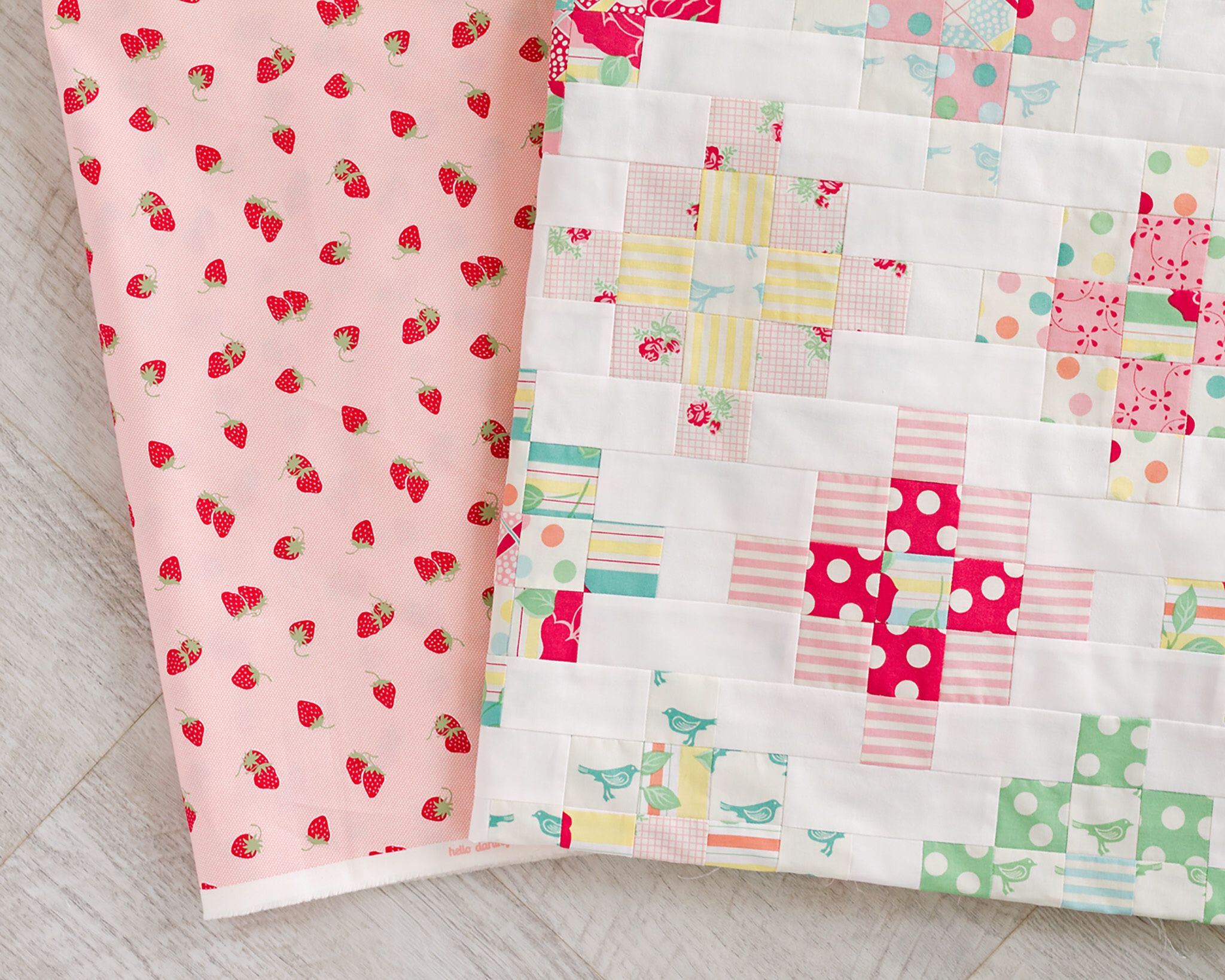
Counting rows while knitting is essential. It makes it easier to track how many stitch you have knit. Depending on the type of knitting you do, you can choose from various types of row counters. Some are simple and others more complex. These counters are either electronic or mechanical and can be worn on a needle or worn.
Electronic counters are able to store row counts in memory, unlike mechanical counters. They are attached to a wristband or ribbon and look similar to a stopwatch. Electronic row counters are powered by batteries. They will not continue counting rows unless the counter is turned on. Some row counters have a button that can be pressed to add numbers to the count. While some can be turned off, most electronic row counters must remain powered on throughout the project.
A row counter that can be used for knitting is compact, durable, and easy to use. Also, you want it to fit your hand. A smaller row counter might be better suited for someone with a smaller hand. Some row counters can be attached to the needle to allow you to count your stitches quickly and easily. A large counter might not be appropriate for you if your hand is large.

Knitter’s Pride row counter ring can be used on thumbs and index fingers. It comes in six sizes and is made from stainless steel. It can count up to 9999 rows. The row counter is also available with rainbow colors. You can use the counter to count any needle size or type.
Knitter’s Pride row counters are compatible with straight, circular, and double-pointed knitting needles. The counter will increment for every row by counting the number of stitches that you have worked in each row. You can count up to 9,999 rows before it resets to zero. To mark the number or stitches in a particular pattern, you can use the counter to count them.
Kacha-Kacha rows counters are bigger than needle barrel rowcounters. These can be attached to a neckband or slipped onto a necklace. You can push the button on top of the counter to move it. Or you can manually move it. These counters make a kachakacha sound as they move. You can easily reset them. Kacha Kacha Kacha counters usually come with a lock. It is useful if the counter is damaged. The counter is protected from unauthorized manipulation.
A lot of knitting stitch counters are rated according to their durability. If you worry about losing your counter, you might want to purchase a stainless steel one. These counters can last a long time and are highly recommended for those who count their stitches over a longer period.

No matter whether you're using an electronic row counter or a mechanical one, it is important to find the right one for you. Some electronic row counters are designed to look like a watch, while others have a more sophisticated look. It is easier to count rows when the row counter fits into your hand. You also have a lower chance of forgetting your counter.
FAQ
What are observation hobbies?
Observation hobbies are activities where you observe people doing what they do. They might include watching sports, reading books, going on holiday, etc. You might also enjoy observing other people.
You can learn creativity through observation hobbies. This knowledge can be used later to help you with projects that you are working on for others or yourself.
You'll find that if you're interested in something, then you'll have an easier time learning about it.
If you're interested in football, for instance, you could watch it or read a book. If you want to learn more about photography, you could take or visit exhibitions.
If you love to play music, there are two options: either buy a new guitar online or follow along with the songs.
You have the option to make your own meals or take out at a restaurant if you enjoy cooking.
You could also grow flowers or vegetables if you enjoy gardening.
You can take a dance class, or just go out with your friends if dancing interests you.
If you like painting, you could paint pictures.
Write poetry and stories if that is what you love to do.
You could also draw pictures if you enjoy drawing.
If you are passionate about animals, you can look after them or work at the zoo.
If you like science, you could study biology, chemistry, physics or maths.
If you like history, you could read books, watch films or listen to podcasts.
If you enjoy travelling, you might consider exploring your local area or traveling abroad.
What kinds of hobbies are appropriate for introverts.
Introverts can focus on only one thing at a given time. They enjoy solitude and prefer to read, write, play music, watch movies, etc.
They also like to be alone. They don't enjoy being social all day. They can even become bored when they're surrounded by people.
This is why introverts often choose hobbies that require them to be alone. An introvert might like to read, listen to music, take photographs, paint, write poetry, or even create art.
Introverts may even prefer to live alone. They can concentrate on their hobby without being distracted.
Why do we have hobbies?
Hobbies play an integral part in our lives. It allows us to unwind and recharge, think creatively, exercise, socialize, have fun, and allow us to enjoy life. Hobbies offer opportunities to develop new skills as well as life-long interests.
Hobbies allow us to find meaning in our lives.
These can often be a great way to get some extra time while you have nothing else.
They're even fun!
You probably don’t have enough time to pursue hobbies.
Take a look at the many options that are available to you. You might consider starting a hobby if you don't already have one.
What are some great hobbies?
Your favorite hobbies are ones you enjoy. It will be easier to continue doing what you love if you are passionate about your work. This will give you a reason for not feeling well, or tired.
Hobbies that we all know and love include gardening, painting and crafts, photography, cooking, sports and games, reading, music, film-making, collecting, cycling, walking, dancing, writing, playing instruments, etc.
Volunteering could be a great option.
Perhaps you want something more adventurous. Consider scuba diving and skydiving.
There are many unique ways to spend time in the outdoors, whether you're looking for adventure or a more traditional way to do it. These include caving.
What are the competitive hobbies?
Competitive sports include running, swimming, cycling, golfing, tennis, etc.
They're usually played by people who enjoy physical activity but also provide an opportunity for social interaction.
You'll likely find others who are interested in your hobby if it involves physical activity.
This could mean joining a club, or group that meets regularly to do sports together.
Participating in group games, which involve playing alongside others, is another option.
These include football (soccer), cricket, rugby, netball, basketball, hockey, baseball, volleyball, badminton, squash, handball, and table tennis.
There are many kinds of competition.
Some competitions may be held for pure recreational purposes.
Others are used to assess competitors' abilities.
Some are even designed to reward outstanding performance.
These cases result in prizes for the winners.
Other competitions are designed to test the strength and stamina of competitors.
These are called endurance events.
For example, marathon races, triathlons, Ironman Triathlon, etc.
Athletes often train hard before competing in these events.
To prepare their bodies and minds, they will have to adhere to a strict training plan.
They might need to travel some distance during preparation.
It is important that you remember that not every athlete can compete in every type or event.
Statistics
- In comparison, men in the “no humor” condition were refused 84.6% of the time and were only accepted 15.4% of the time. (time.com)
- The Role of the Mind in Sex, Dating, and Love: Men in the “humor” condition received phone numbers from 42.9% of the female participants and were refused 57.1% of the time. (time.com)
- Much of this decline reflects the fact that teens are less likely to work today than in the past; among employed teens, the amount of time spent working is not much different now than it was around 2005. (pewresearch.org)
- Almost 80% of people claim to have no hobby. (hobbylark.com)
- The intensity of the dialogue partners' bond at the end of the forty-five-minute vulnerability interaction was rated as closer than the closest relationship in the lives of 30 percent of similar students. (time.com)
External Links
How To
How to Learn a Musical Instrument
There are many options for learning how to play the piano. There are many options. You can go to school, purchase a book, learn from an instructor, or watch videos online. Here are some tips and techniques to help you learn if your goal is to create your own learning path.
-
Find something that interests and you. If you don't like any of the instruments you see around, then you should try another one. If you don't like playing an instrument, it would be difficult to learn how to play it.
-
Be patient. It takes time to learn anything new. Do not expect to be able to master every aspect of the subject immediately. Instead, practice every day.
-
Make sure you practice regularly. Even when you feel tired, continue practicing. This will ensure that you won't forget what you learned.
-
You should choose a comfortable place to practice. It is best to find a quiet space where you will not disturb others. Also, make sure that there aren't too many distractions. It is best to avoid listening to loud music nearby.
-
Have fun. Music should be enjoyed. You should have fun practicing music. You will be motivated to do more if you have fun.
-
Set goals. When you set goals, you know exactly what you have to achieve. This will make it impossible to fail.
-
Keep track of how you are doing. Notate all of your achievements and failures. You will be able to improve your skills over time by writing down all of your achievements and failures.
-
Pause. Sometimes you just need to take a break. You will be able to take breaks and think about the things you are doing.
-
Ask questions. Ask for help if you are unsure or have questions about certain aspects of the instrument. They may be in a position to assist.
-
Listening is the best way to learn. Many musicians enjoy listening to their favorite songs and trying to imitate them. This allows them to understand the basic ideas behind the song.
-
Read books. You will learn more from reading books than you can by watching videos or attending classes. You will also find information in books that you won't find anywhere else.
-
Get involved in a band. Playing with others will force you to practice more. Plus, you'll meet people with the same interests as you.
-
You can watch tutorials. Tutorials are brief videos that cover a variety of topics in great detail. Tutorials are short videos that focus on one part of the instrument. Tutorials can help you understand complex parts of your instrument.
-
Try different methods. Some people prefer to learn through lectures, whereas others learn better by reading. Try different methods until you find the one that works for you.
-
Practice makes perfect. The truth is that nobody becomes an expert overnight. You must work hard to become proficient enough to do well.
-
Get along with other musicians. Listening to your fellow musicians perform their favourite songs can help you learn quicker.